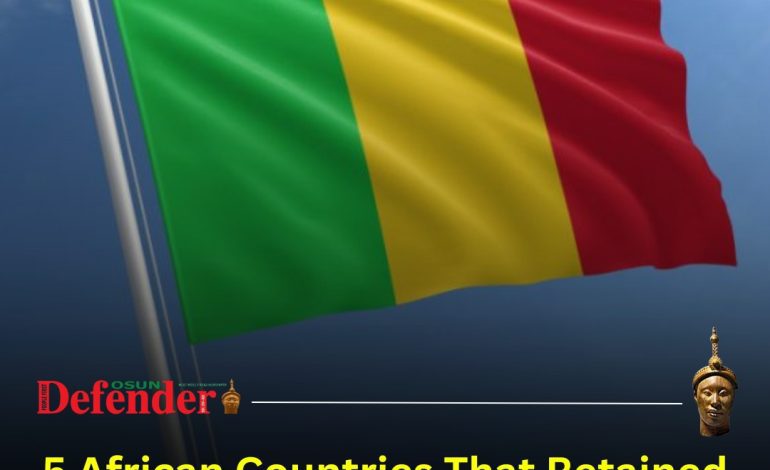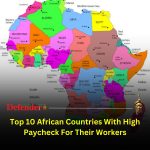5 African Countries That Retained Their Colonial Names

Names hold significant meaning, often reflecting history, identity, and culture. This is particularly true for African countries, where names can tell the story of colonisation, resistance, and independence.
While many nations on the continent chose to adopt new names after gaining independence to reflect their indigenous heritage and identity, some countries retained the names given to them during colonial rule. Here are five such countries:
Nigeria
The name “Nigeria” was inspired by the Niger River, which traverses the nation, and was coined by British journalist Flora Shaw on January 8, 1897. The neighboring Republic of Niger also derives its name from this river.
Nigeria achieved partial self-governance in 1954 and full independence on October 1, 1960, becoming the Federation of Nigeria. At independence, Abubakar Tafawa Balewa became the first Prime Minister, while Queen Elizabeth II initially remained the ceremonial head of state as Queen of Nigeria.
Mali
Formerly known as French Sudan under French colonial rule starting in 1892, Mali was part of the Federation of French West Africa. By 1958, it had gained internal autonomy under the name the Sudanese Republic and joined the French Community.
In 1959, the Sudanese Republic merged with Senegal to form the Federation of Mali. On June 20, 1960, the federation gained full independence, and Mali retained its name after Senegal withdrew. Modibo Keïta became the first president of the newly independent Mali.
READ: South African Police Officers Arrested For Allegedly Robbing Nigerian
Sierra Leone
The name Sierra Leone, meaning “Lion Mountains,” was given by Portuguese explorer Pedro de Sintra in the 15th century, referencing the hilly terrain around Freetown harbor.
The country, which had been under British colonial rule, gained independence on April 27, 1961. Post-independence, the Sierra Leone People’s Party (SLPP) emerged victorious in the first general elections, with the All People’s Congress (APC) as the main opposition.
Guinea
Guinea takes its name from the wider Guinea region, which stretches from the Gulf of Guinea inland to the Sahel. The name “Guinea” was first used by the Portuguese in the 15th century to describe lands south of the Senegal River.
Following a referendum rejecting France’s proposed constitution, Guinea declared independence on October 2, 1958. Ahmed Sékou Touré became the nation’s first president. Although its official name has changed several times, the country retained its colonial-era name of Guinea.
Cameroon
Cameroon’s name originates from Portuguese explorers in the 15th century, who called the Wouri River “Rio dos Camarões” (River of Prawns) due to the abundance of shrimp in its waters. Over time, the name evolved into “Cameroon” under colonial rule.
Initially colonized by Germany in 1884 as Kamerun, the territory was divided between France and the United Kingdom after World War I. French-administered Cameroon gained independence in 1960, while the British-administered region joined in 1961 to form the present-day Republic of Cameroon.
These countries, despite their unique histories and paths to independence, retained their colonial names, which continue to serve as a reminder of their historical ties and colonial legacies.

Hafsoh Isiaq is a graduate of Linguistics. An avid writer committed to creative, high-quality research and news reportage. She has considerable experience in writing and reporting across a variety of platforms including print and online.









